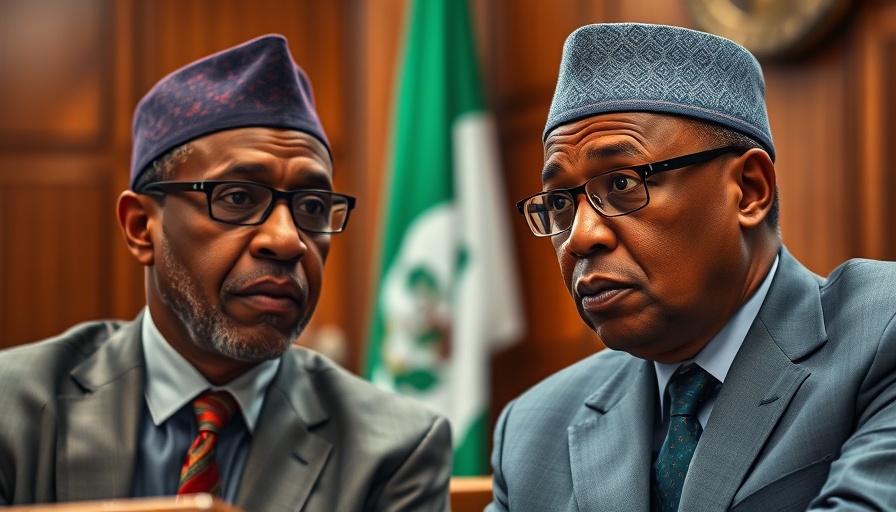
Political Turmoil: A Case Study of Nigeria’s Senate
The recent chaos in Abuja’s Senate chambers serves as a glaring testament to the dysfunction plaguing Nigerian governance. What should have been a standard closed-door session to discuss a planned recess erupted into a fierce confrontation between Senate President Godswill Akpabio and Senate Leader Omo-Agege. This spectacle was not only a battle of wills but a vivid illustration of the underlying issues within Nigeria's political sphere. Key players accused Akpabio of unilateral decision-making, highlighting a growing concern regarding the lack of leadership consultation and open discourse.
In 'Senate Chaos: A Tale of Leadership in Nigeria,' the discussion dives into the troubling dynamics of political power in the Senate, leading us to analyze its implications on women's representation and the need for leadership reform.
Democracy Under Siege: The Implications of Autocracy
The implications of Akpabio's alleged autocratic behavior underpin a troubling trend in Nigerian politics—where interests diverge from the essence of democracy. Akpabio has been characterized not just as a senator but as a sole administrator, drawing attention to the serious flaw in the leadership structure that prioritizes dominance over dialogue. The sidelining of legislative voices transforms the Senate into a platform of power struggles rather than a bastion of collaborative governance.
Women’s Rights and Representation: A Growing Concern
One of the most alarming aspects of this debacle has been the treatment of Senator Natasha Akpoti, who was denied entry to the Senate chamber despite a court ruling in her favor. Such actions reflect a broader issue regarding women's representation in Nigerian politics, resonating deeply against the backdrop of Akpabio’s leadership. With allegations of sexual harassment against him, the denial of Akpoti's voice sends a chilling message about the extent to which gender equality has been compromised in contemporary governance.
Parallel Narratives: The Super Falcons and National Pride
Amidst the political tempests, Nigeria's Super Falcons have emerged as a beacon of resilience and excellence. Their remarkable victory in the women's continental football championship not only highlights the prowess of female athletes but also juxtaposes the ongoing political disenfranchisement. While political leaders engage in divisive tactics, these remarkable women continue to uplift and unite the nation through sport, illustrating their capacity to conquer adversity and inspire change.
A Call for True Leadership and Representation
What this turbulent political episode ultimately underscores is a critical need for transformative leadership in Nigeria—one that acknowledges and prioritizes representation, accountability, and inclusiveness. As the public observes this unfolding saga, it calls for leaders who are not merely ruling but are genuinely representing the people they serve. This entails regular consultations, open dialogues, and an unrelenting commitment to uphold the principles of democracy.
What Can Be Done: Building a Better System
In light of recent events, it is paramount for stakeholders in Nigerian politics to reassess their approaches to leadership and representation. Implementing mechanisms for accountability, fostering inclusive parliamentary practices, and prioritizing the voices of marginalized groups, especially women, can catalyze a shift towards better governance. Additionally, civil society must take an active role in holding leaders accountable to transparent and democratic processes.
The Future of Governance in Nigeria: A Collective Responsibility
As citizens, it is imperative to advocate for a political landscape that doesn’t just tolerate dissent but welcomes and respects it as a fundamental feature of democracy. If genuine change is to occur within Nigeria's political framework, a collective commitment from both leaders and citizens is essential. The future of governance in Nigeria hinges on the courage to stand against autocracies, champion equality, and promote a government that genuinely reflects its people's will.
 Add Row
Add Row  Add
Add 


Write A Comment